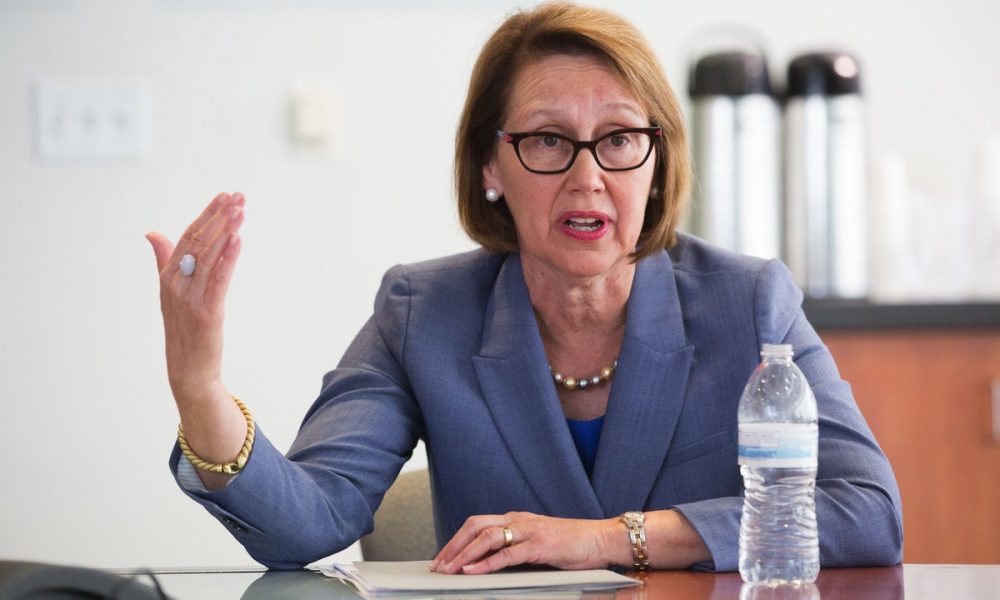
The U.S. Supreme Court could force Oregon into doing what every other state already does – requires every juror to vote to convict before a person is judged guilty.
Such a decision by the Supreme Court in a case now before it could make it more difficult for prosecutors to get convictions and could provide a new of avenue appeal for those already convicted.
The looming ruling pits some of Oregon’s criminal justice reform champions against each other. Attorney General Ellen Rosenblum recently submitted a brief to the high court, urging the justices to find split decisions are constitutional. A decision rejecting such verdicts would send the Oregon court system into disarray, she said.
Rosenblum is against split decisions, but said Oregon has been following previous Supreme Court rulings that unanimity is not required. Her role in submitting a legal filing to the court was “making sure the Supreme Court is aware of the impact on our state justice system,” she said.
[ KEEP YOUR LOCAL NEWS STRONG – SUBSCRIBE ]
For the past 85 years, people in Oregon charged with most felonies can be convicted if at least 10 of the 12 jurors vote guilty. Oregon is the only state to allow split decisions. Recently, Louisiana moved away from split decisions.
The 2019 Legislature considered but didn’t pass a proposal to ask voters to decide whether to bar split verdicts.
Rosenblum is worried that overturning a 1972 U.S. Supreme Court ruling in Apodaca v. Oregon, which upheld split decisions, would impact past cases. The Supreme Court is considering a case from Louisiana to determine whether a split decision is constitutional.
Oregon’s court system doesn’t track how the jury votes in convictions. Rosenblum’s spokeswoman, Kristina Edmunson, said state Justice Department lawyers are aware of about 300 cases where there was a split guilty verdict.
Rosenblum said the actual number could be much higher — potentially in the thousands.
Roughly 97% of criminal cases are resolved without a trial. But in two out of three cases that do get to a jury, convictions result from split verdicts, according to the Justice Department.
If the Supreme Court abolishes split verdicts, the state wouldn’t take action to review convictions resulting from unconstitutional conduct. Instead, according to Rosenblum’s staff, it would be up to defendants to challenge their convictions and defense attorneys have been preparing for such appeals.
Aliza Kaplan, a Lewis and Clark Law School professor, said she’s puzzled why Rosenblum is trying to sink what she considers crucial reform for Oregon’s criminal justice system.
Rosenblum said since the Supreme Court ruled in 1972 that split decisions were legal, she doesn’t think past cases should be overturned. She wants voters to approve a change to unanimity going forward.
Rosenblum said either way, defense attorneys will file appeals, but said her team has been preparing legal arguments for that.
“You could certainly say, ‘hey for 80 years we’ve had an unconstitutional system in Oregon.’ I’m not buying that,” Rosenblum said.
Kaplan contended in her own brief filed with the Supreme Court that split decisions are unconstitutional. Her brief was joined by Gov. Kate Brown, former governors John Kitzhaber, Ted Kulongoski and Barbara Roberts, and several former state Supreme Court justices.
In 1934, Oregon voters approved a ballot measure allowing split jury verdicts. At the time, white supremacy was at its height in Oregon, and state newspapers editorialized about the need to silence minorities’ voices on juries by allowing a split decision.
Because of that past, Kaplan finds it especially hard to understand Rosenblum’s position.
“Is her real issue retroactivity, or is it that she’s going to be on the wrong side of history on this issue?” Kaplan said. “To side with racism and our horrible history in a law is completely unfair.”
Rosenblum said she is aware of the history of the policy, but for more than 80 years, the state has followed a practice upheld by the courts.
Even if a Supreme Court ruling doesn’t specifically address closed cases, many expect the legal challenges to pile up nonetheless.
Those found guilty by a split decision could appeal to have the new rule applied to their cases, likely setting up new legal battles.
Marc Brown, chief deputy defender for the Public Defense Services appellate division, said normally when a jury deliberates, its first step is a poll. If 10 want to convict but two have doubts, the two might concede the verdict because a judge told them that they don’t all need to agree.
Brown said public defenders have asked that jurors be instructed that they can decide themselves to return only a unanimous verdict for conviction, but judges so far have sided with the state’s objection to using that approach.
Brown said it’s confusing for state leaders to argue split verdicts are unconstitutional while prosecutors continue blocking the use of instructions to turn juries away from such verdicts.
Reporter Aubrey Wieber: [email protected] or 503-575-1251.









